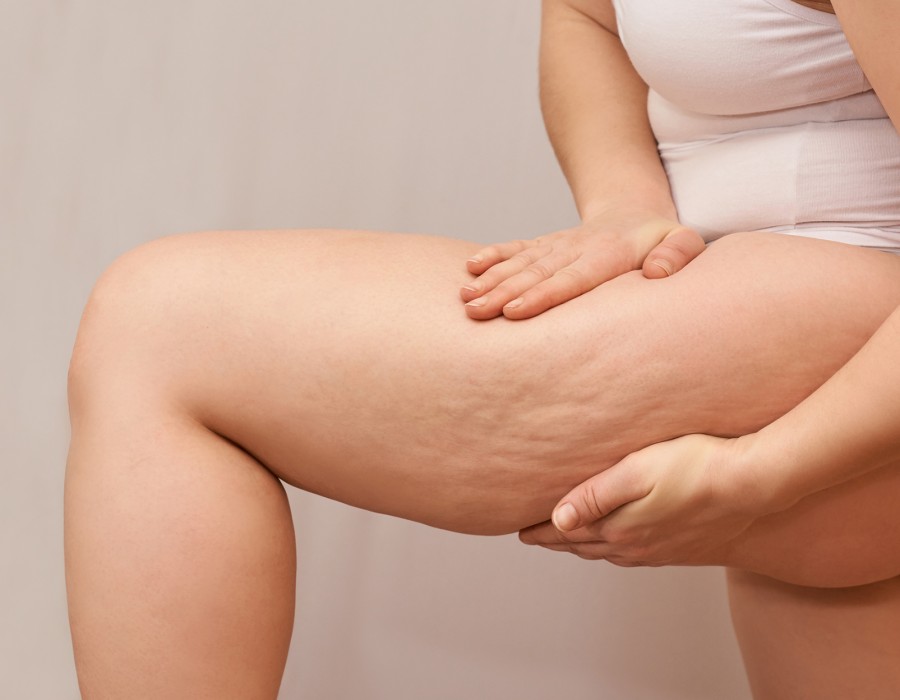Understanding Cellulite
Cellulite is a common skin condition that affects the appearance of the skin, creating a dimpled or lumpy texture, often on the thighs, buttocks, and abdomen. It is particularly prevalent in women and can occur regardless of body weight or fitness level. While it’s not medically dangerous, cellulite can affect self-esteem and body image, prompting many to seek solutions for smoother skin. But one of the most frequently asked questions remains: is cellulite genetic?
Genetics and Cellulite: Is There a Connection?
Yes, genetics play a significant role in the development of cellulite. If your parents or close relatives have cellulite, you are more likely to develop it as well. Several genetic factors can influence how cellulite appears, such as your metabolism, fat distribution, skin structure, and circulatory efficiency. These inherited traits determine how your body stores fat and how connective tissues behave beneath your skin, both of which are crucial in the formation of cellulite.
Furthermore, genes influence your body’s collagen production. Collagen is a protein that provides structure and elasticity to the skin. When collagen levels are low or unevenly distributed due to genetic reasons, the skin may not be able to withstand the pressure from underlying fat deposits, leading to the lumpy appearance known as cellulite. Although genetics may set the stage, other factors such as hormonal changes, poor diet, lack of exercise, and aging can exacerbate the condition. To address this concern effectively, many individuals are now exploring advanced solutions like Cellulite Removal Treatment in Islamabad, which target the root causes of cellulite regardless of genetic predisposition.
Can You Prevent Genetically Inherited Cellulite?
While you can’t change your genetic makeup, adopting a healthy lifestyle can minimize the severity or visibility of cellulite. Regular physical activity improves muscle tone and circulation, which can enhance the appearance of your skin. A balanced diet rich in antioxidants, lean protein, and low in processed foods supports collagen production and fat metabolism. Staying hydrated also helps maintain skin elasticity. These habits won’t completely prevent cellulite, especially if you’re genetically predisposed, but they can significantly reduce its impact.
When Should You Consider Professional Treatment?
If lifestyle changes aren’t providing the desired results, it may be time to consider professional options. Non-invasive and minimally invasive treatments are available that specifically target cellulite. These procedures can improve skin texture by breaking down fibrous bands under the skin, stimulating collagen production, and improving circulation. Whether your cellulite is mild or severe, these treatments can offer smoother, firmer skin with little to no downtime.
Technological advancements have made these treatments more effective and accessible than ever. Individuals in Pakistan, for instance, can benefit from state-of-the-art Cellulite Removal Treatment in Islamabad, performed by experienced professionals who tailor the procedure to your specific skin type and genetic profile. This personalized approach ensures optimal results for patients seeking long-lasting improvements.
The Role of Hormones and Lifestyle
While genetics is a key factor, hormones such as estrogen, insulin, and thyroid hormones also contribute to cellulite development. Estrogen, in particular, affects fat storage and collagen levels, which explains why cellulite tends to worsen during periods of hormonal fluctuation like puberty, pregnancy, or menopause. Stress and an inactive lifestyle can also trigger hormonal imbalances and poor circulation, which further aggravate cellulite.
Managing these elements through stress-reducing practices, regular workouts, and balanced nutrition can help keep your skin healthier and reduce the appearance of cellulite. However, when genetics are strongly involved, even these efforts may have limited effect—another reason why medical-grade treatments are growing in popularity.
Conclusion
In summary, cellulite is strongly influenced by genetics, but it is also affected by hormonal, lifestyle, and environmental factors. While you may be more prone to developing cellulite due to your family history, proactive measures such as healthy living and professional treatments can help manage its appearance. For those seeking noticeable and lasting results, turning to experts in aesthetic care is often the most effective route. The specialists at Royal Cosmetic Surgery PK provide personalized and advanced cellulite treatment options that address both genetic and lifestyle components, helping you achieve smoother, firmer skin with confidence.





Comments